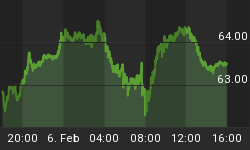We have been here before. Prior to the last FOMC meeting, there were many signs that the Fed was preparing action, and they produced nothing. Prior to the ECB meeting, with Draghi pounding the table about the extraordinary defense of the Euro union that they were prepared to mount, they did nothing.
So, that being said, I will admit to experiencing some pleasure when the FOMC minutes for the August meeting, released yesterday, showed a substantial amount of discussion around the issues of QE3 and of paying interest on excess reserves. Pleasure - although not without some tinge of dread, since I think QE3 is the wrong thing to do - because although I was wrong about what the August 1st meeting would actually produce, it turns out that I wasn't terribly far wrong about the state of the debate. It is ever the case that predicting a committee's action on a particular date is difficult, just as it is difficult to predict the winner of any particular baseball or basketball contest. But, if you figure out what argument, and whose voice, is likely to be the overall strongest in the committee, then you'll be right more often than not, and you'll get the contours of policy right (to extend the prior analogy, you'll correctly assess who wins the division, if not the game, if you know which is really the stronger team).
The FOMC minutes expressed as much urgency as we thought they felt at the August meeting; we just didn't get the result we expected from that urgency:
"Many members judged that additional monetary accommodation would likely be warranted fairly soon unless incoming information pointed to a substantial and sustainable strengthening in the pace of the economic recovery."
Many members is, if anything, displaying a bit more alarm than I'd thought was present at the Fed. We already knew that the Chairman felt this way, since after the June FOMC meeting he said in his presser: "If we don't see continued improvement in the labor market, we'll be prepared to take additional steps if appropriate."[emphasis added]
Way back in June, I said that I thought a "soft" Evans rule was in place now, and both Bernanke's statement above and the minutes of this last FOMC meeting suggest that the Fed is growing impatient with growth. To be sure, I don't think there is anything significant they can do about growth, but what is important is what they believe and, against all evidence, they feel that they can move Q (in MV≡PQ). Soon, they will take another shot at it.
Now, what's interesting to me is that the market reaction to the minutes was actually rather tepid. On Wednesday, the S&P 500 rallied a grand total of about four points on the release of the minutes, and today prices fell 11 points. But the dollar fell both days, gold was up $32 today (the pit closes at 1:30ET, so there was no reaction yesterday), and gasoline was up both days. Treasuries rallied, which is a response to the notion that the Fed will probably be buying more bonds, but TIPS rallied more, which means that even as rates declined, inflation expectations rose. 10-year inflation swaps are now as high as they have been since early May (see Chart, source Bloomberg), and 5y, 5y forward inflation is approaching 3% again. I don't think it stops there.

And remember, this is all anti-seasonal. Only three times in the last thirteen years have 10-year breakevens been higher on September 1st than on May 1st. Right now, 10-year breakevens stand higher than they were on May 1st.
Probably, that means that breakevens are due for a correction. Certainly, I think they are vulnerable to a disappointment if, at Jackson Hole next Friday, the Chairman downplays the Fed's resolve. But right now, I find it hard to imagine that anything has happened since early August that would make Bernanke back away from a very dovish stance. I am not one of those who thinks the Fed will, or should, worry about appearing "political." Whatever the Committee does in mid-September certainly won't have any measurable effect on the economy as early as late October! On the other hand, if they were to act on October 24th (at the next meeting), it could plausibly affect short-term confidence - so if you're going to skip a meeting, it's that one that you want to skip.
What I think is more important is that with retail gasoline back above $3.70, the window for further dovish action is going to close swiftly. The doves on the Committee have gotten very fortunate to have had core CPI flatten out and even decline a couple of tenths largely on ephemeral base effects, and headline inflation is also low thanks to the prior decline in gasoline prices. By the December 12th meeting, headline inflation will be much higher than it currently is, simply because of the rise in gasoline, and core inflation will likely be upticking again as well. I really don't think the time for announcing another tranche of quantitative easing will get much better.
Finally, the Minutes reveal a great sensitivity to the vulnerability of the economy to a shock from Europe. If there is going to be a shock from Europe, does it make more sense to take out insurance against it now, or in December?
The September meeting itself is still weeks away, and there is another Employment report and substantial additional data before then. But on the evidence today, I think the Fed is loading the pistol for another shot. Markets will probably spend the next week or so (at least) bracing for it. I'm still bullish on commodities, and bullish (albeit somewhat wary) about breakevens.















